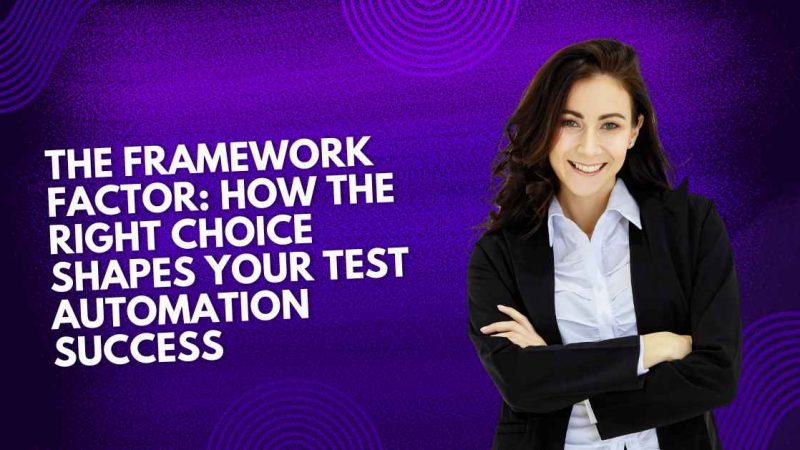Advancements in AI-Powered Automation Testing
With the introduction of Automation Testing, various new testing processes have improved the accuracy and productivity of the testing infrastructure. Some of the notable mentions in this list include automated visual regression testing, automated cross-browser testing, and automated performance testing.
In recent times, integrating artificial intelligence with test automation has further boosted the productivity and reliability of the entire application development life cycle. For instance, now, the test cases can automatically adjust themselves according to the changing parameters and requirements of the testing cycle.
So, with this article, we are going to explore some of the major advancements in AI-powered automation testing. We will also discuss some of the primary integrations that can help app developers and testers improve the productivity of their overall application development and testing environment.
Exploring the Basics of Automation Testing
For general knowledge, automation testing is a modern software testing technique that utilizes automated tools and scripts for performing tests on a software application. The main objective of automation testing is to increase the effectiveness, efficiency, and overall coverage of the software testing process.
Let us now glance through some of the basic ideas relevant to the automated testing process:
Objectives of Automation Testing
- Automation testing aims at improving the efficiency of the testing process by conducting the test cases faster than manual testing.
- Using this advanced testing process, the developers can also ensure that the test cases can be repeated to improve the consistency of the test results.
- Using this process, the testers can quickly check whether any new code change negatively impacts the functioning of the existing elements of the application.
- Using automation testing, the application testers can execute multiple test cases simultaneously on different configurations and environments.
Categories of Automation Testing
- The basic category of automation testing involves separating all the elements present in the application into individual entities known as units. Unit testing is the simplest form of automation testing as it tests all the components in isolation.
- Using integration testing, the developers can check the proper integrity of different components or systems present in the application.
- Functional testing aims at verifying the functionality of the application as per the specified requirements or the intentions of the app developing company.
- Using regression testing, the developers can ensure that new code does not impact the functioning of the existing code in the application architecture.
- Performance Testing aims at validating the performance of the application on multiple devices and use cases. It also assesses the scalability and responsiveness of the application infrastructure.
- Using load testing, the developers can analyze how the application behaves to unusual traffic or certain specified load conditions.
- The developers can verify the reliability and functionality of the application programming interface using automated API testing.
- Finally, using user interface testing, the developers can automatically verify the graphical user interface for responsive errors, misplacement of UI elements, and other functional issues.
Automated Testing Tools
- Selenium is one of the most popular names in the segment of automated testing tools. Using this test suite, the developers can automatically verify the functioning of modern web applications.
- Appium is another popular name in this segment and is used for running automated testing on mobile applications across multiple platforms like Android, iOS, and Windows.
- Using Jenkins, the automation testers can access an open-source server for continuous integration and continuous delivery.
- Cucumber supports the execution of behavior-driven development along with plain text descriptions.
Best Practices for Automation Testing
- Before executing automation testing, it is crucial to clearly define the objectives, scope, and criteria for the testing phase.
- The developers need to choose the correct testing instances that can benefit from this process. Some of the initial options include repetitive test cases that are time-consuming or critical for automation.
- It is a good practice to use external data sources to provide random data sets crucial for executing the test cases.
- It is important to regularly maintain the test cases and ensure that they align with the application changes. The developers should also include automation testing with the CD/CI pipelines for a faster feedback cycle.
What is AI-Based Automation Testing
AI-based automation testing involves the integration of machine learning and artificial intelligence with the process of software testing and test automation. Using this approach, the developers can use intelligent algorithms to enhance various aspects of the testing cycle. This can range from designing the test cases and executing them to analyzing the results and maintaining the test cases.
The primary objective of this advanced testing process is to make the testing process more efficient, adaptable, and accurate based on the dynamic nature of modern software apps.
Let us now understand some of the critical areas of automation testing that are directly influenced by the integration of artificial intelligence:
-
Test Case Generation
Using artificial intelligence algorithms, the system can analyze the application behavior, user interactions, and historical data. This approach will help automatically generate test scripts and reduce the manual effort of designing the test cases.
-
Test Execution and Analysis
Artificial intelligence can adapt test execution based on the application changes. So, it can identify and execute the relevant test cases in response to all these modifications in the application source code.
Moreover, using AI algorithms, the system can detect and address changes in the application. It can also automatically update the test scripts to match the modified elements in the application.
-
Managing Test Data
AI can assist modern automation testers in creating diverse and realistic test data for optimizing the testing process and improving the overall test coverage.
Using AI, app-developing companies can also mask sensitive information during the testing process for complying with the data protection regulations.
-
Defect Prediction and Analysis
AI algorithms can analyze historical test data to predict potential areas of failures or defects. Based on these predictions, it helps the system to prioritize the testing efforts in the relevant areas.
Artificial intelligence can directly identify the root causes for any defects or errors and provide insights into why that particular issue occurred during the test execution process.
-
Natural Language Processing and BDD Integration
Natural Language Processing also known as NLP is integrated for allowing testers to write testing scenarios in plain language. Then, the system can translate it into automated test cases using artificial intelligence.
It also supports the collaboration between the testers, developers, and even the non-technical stakeholders through natural language specifications. So, all the members of the company can have a basic understanding of the current status of the app project.
-
Adaptive Environments
Finally, AI assists the app companies in configuring and adapting testing environments based on changes in the application infrastructure. This is a critical parameter as modern apps go through frequent changes to keep up with the rising demands of the industries and customers.
Major Revolutions In AI-Based Automation Testing
In the past few years, AI-based automation testing has seen significant changes and integrations. To simplify this knowledge for the new testers and developers, we have created a list of some of the notable trends in this segment:
-
Intelligent Test Automation
Test automation tools incorporate machine learning algorithms to enhance the ability to predict failures, recognize patterns, and optimize the test cases.
AI algorithms can now detect changes in the app and automatically update the test scripts. This approach helps reduce the need for manual intervention when the application undergoes modifications or frequent updates.
-
Scriptless Automation
Using Natural Language Processing that we discussed earlier, the developers can create the test cases in a more accessible way. It also allows the testers to write the test scenarios in plain language that can be understood by all the members of the app-developing company.
This approach also helps to save a lot of hassle that is involved with maintaining the test cases and keeping them updated based on the changing requirements of the application.
-
Cloud-Based Testing
Modern cloud-based platforms use artificial intelligence to provide scalable and flexible testing environments. It also enables the efficient execution of test cases through the cloud platforms. For instance, using these platforms, the developers can execute the test cases on thousands of real devices through remote servers.
Cloud platforms like LambdaTest also provide additional features like live test activity logs, a native way to monitor the bugs, and comprehensive test reports for efficient debugging and troubleshooting.
-
Test Data Generation
Using artificial intelligence, the developers can generate synthetic test data which reduces the reliance on manually created data sets. It also ensures a more comprehensive and diverse set of test cases.
Based on the requirements of the application development project, the testers can also hide sensitive user data to ensure privacy and compliance with data security regulations. This is a massive advantage when the testers are working with sensitive applications that deal with a lot of user information or transaction details.
-
Visual Testing
Artificial intelligence can be employed to perform visual testing by recognizing and validating elements. Some of the common elements include buttons, images, and videos. It also ensures that the user interface of the application remains consistent across different devices and software versions.
-
Parallel Test Execution
Using AI, modern automation testers and developers can also distribute the test cases across multiple machines. Using this approach, the developers can massively optimize the test execution process. It also saves a lot of company time and resources in the development life cycle.
-
Performance Testing
Currently, artificial intelligence can be integrated with load testing. This approach helps simulate realistic user behavior and identify the performance bottlenecks within the application infrastructure. It can also find out various weaknesses that can cause massive drops in performance due to different use cases or interaction errors.
-
Test Debugging
By integrating artificial intelligence with modern application development and testing processes, the developers can easily keep track of the faulty elements within the application infrastructure. This integration also allows the developers to quickly navigate to the faulty elements and suggest possible ways of resolving them.
The Bottom Line
Modern automation testers must remember that the field of artificial intelligence and automation testing is rapidly evolving so, it is common for there to be new advancements and trends beyond the present point. So, we recommend the testers and developers constantly keep updating their knowledge about all the new trends, innovations, and integrations in this segment.
It is also important to understand the scope of the application, the target audience, and the intended usage also has a critical role in defining the exact strategy for executing AI-based automation testing. Moreover, using this approach, the developers can also customize the application infrastructure to serve a wider section of users and expand the company’s reach.






